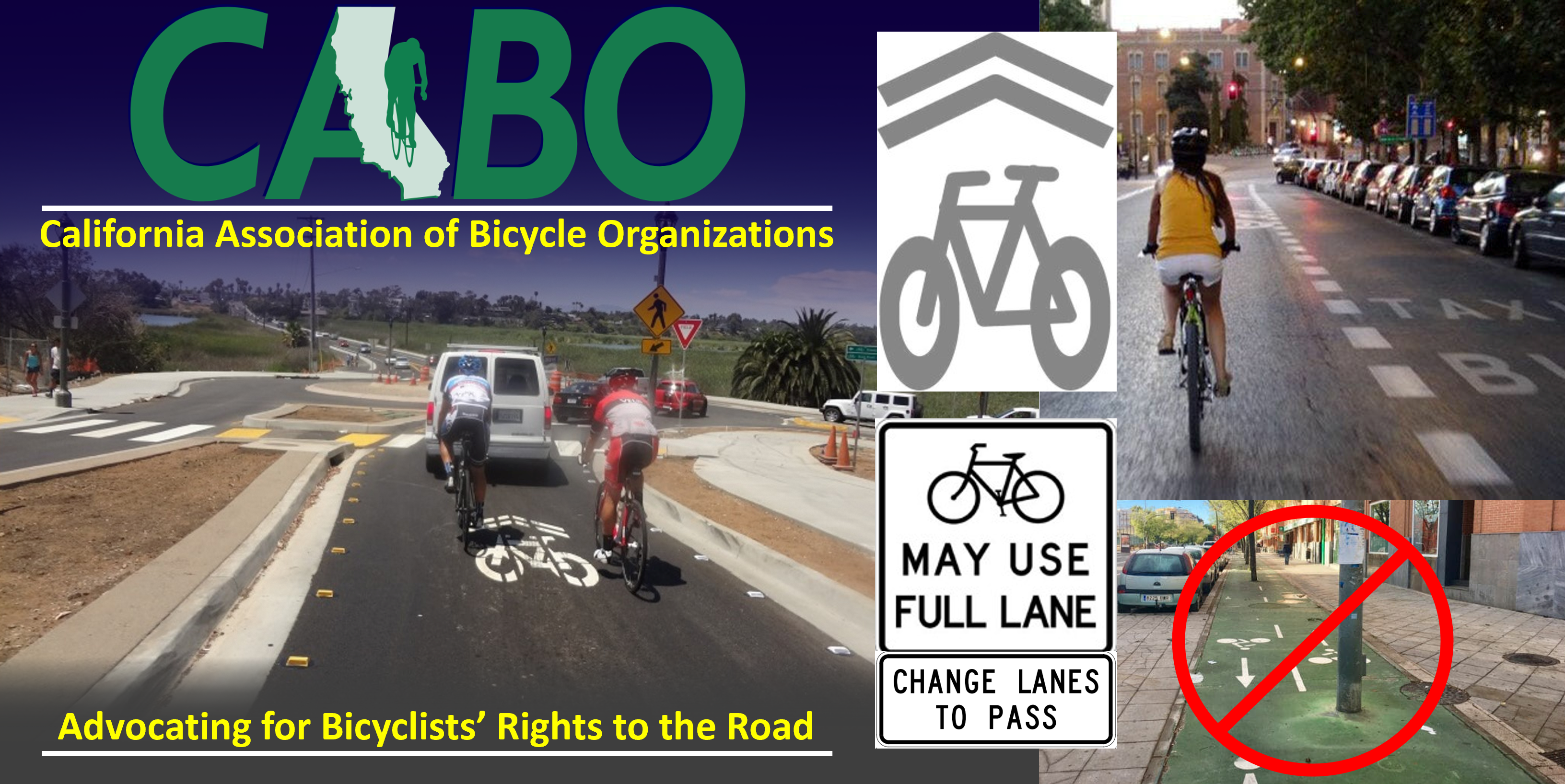Bicyclists should have the same right to fair and equitable treatment as other responsible road users. The basis for these rights is the expressed through the six Es approach that CABO supports:
Equality – Legal: traffic law and legislation, including movements, access, equipment, uniformity
Engineering – Transportation: road and bikeways development, design, and construction, and mobility and funding sources
Enforcement – Police and Courts: Equitable treatment of bicyclists through citations, penalties, punishment, and trials
Education – Schools and public agencies: Bicycling education for the public, engineers, planners,
law enforcement, and legislators
Encouragement – Public and private agencies: advertising campaigns, promotions, etc. Evaluation – Public agencies: Measurement of the effects of the other Es using relevant research methods and testing CABO supports equity in the treatment of all bicyclists in the implementation and evaluation of all Es. Equality – The equal legal status and equal treatment of bicyclists in traffic law. State traffic law must be fair, equitable, uniform, and operator neutral to the greatest extent possible. Ability for people to access all public destinations by bicycle which are accessible by motor vehicle must be protected. State and local laws that discriminate against bicyclists, restrict their right to travel
individually or in a group, or reduce their relative safety must be repealed.
Engineering – Roadways and bikeways must conform to relevant design standards and allow for safe, legal, and efficient traffic (which includes bicycling) movements. Design, construction, operation, and maintenance of roads and bikeways must equitably serve all users. Trip endpoint and waypoint facilities, such as parking and signage, must serve bicyclists.
Enforcement – Bicyclists must be given equal treatment by police and the courts in the
enforcement of traffic laws and in the investigation of crashes. Bicyclists must be viewed as fully equal to other parties in the determination of culpability in crashes, the economic value of injuries or death, and non-economic losses awarded to crash victims.
Education – Bicycling training should be based on treating cyclists as drivers. This type of bicycling is based on the same sound, proven traffic principles governing all drivers and is the safest, most efficient way for all cyclists to operate, by making them highly visible and their actions predictable to other road users. Training for those who design roadways and bikeways should consider the full range of bicycling behaviors.
Encouragement – Promotion of cycling as healthy, economic, and environmentally sound method
of transportation and recreation. Encouragement may be done via promotional campaigns,
incentives for those choosing cycling, and promotion of cycling as a healthy activity. The
encouragement should be inclusive of all types of people who use bicycles.
Evaluation – Evaluation of the other five Es (Equality, Engineering, Enforcement, Education, and Encouragement). Evaluation must involve measurement, analysis, and research, using rigorous and statistically sound methodologies.
CABO
California Association of Bicycling Organizations
